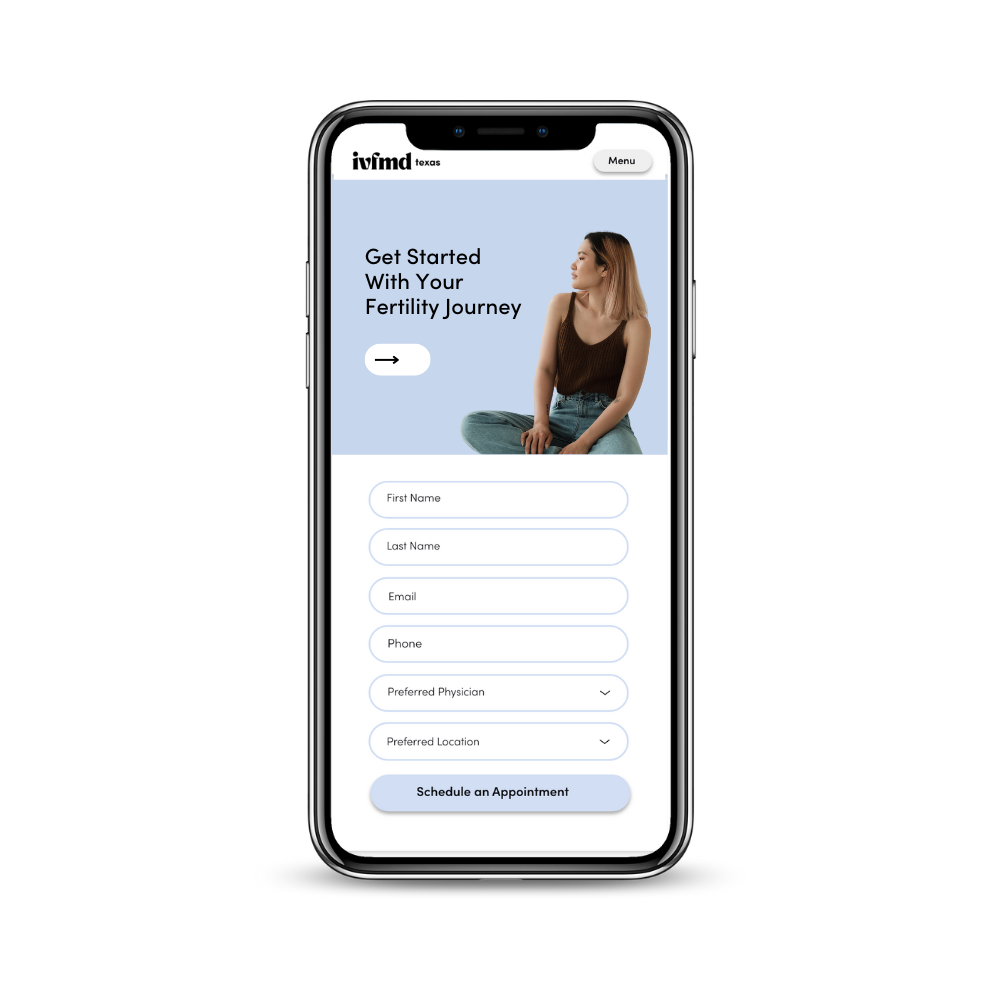Decide on a Plan
Your fertility specialist will provide you with individualized dosages and a schedule for when to take your medication based on your cycle.
Medications and Injections to Induce Ovulation
We’ll start with the use of oral medications that induce the release of FSH (Follicle Stimulating Hormone), a hormone released by the pituitary gland that stimulates the follicle on the ovary to grow. If the oral medications are not successful in growing the follicle, FSH injections are the next step. The injections directly stimulate follicular development, resulting in higher pregnancy rates, but also have a significantly higher chance of having twins or multiples.
Trigger Injections and Timed Intercourse
Once the follicle has reached maturity, which is determined by an ultrasound, an HCG injection is often used to trigger ovulation, improve the levels of progesterone production and to coordinate the timing of intercourse or IUI. The egg is usually released 28 to 42 hours after the trigger or natural LH surge, thus we instruct our patients to have intercourse or IUI over the next 3 days.
Monitoring and progesterone supplementation, if necessary
Two weeks after the trigger or LH surge, hopefully you will become pregnant or your period will start. For patients who have low progesterone levels and a short luteal phase, our fertility specialists will supplement with progesterone when necessary.
FAQ
It’s important to note that ovulation induction may take several cycles to be effective. Since the oral medications work through the brain and pituitary to stimulate the ovaries, your state of mind can affect the ovarian response. Your follicle will develop better when you are relaxed, so massage or acupuncture can be beneficial additions to the treatment experience. Our fertility specialists will work closely with you to determine if other treatments such as IUI are necessary in conjunction with your ovulation induction.
What are the risks of ovulation induction?
Ovulation induction is typically a straightforward process, but like all medical procedures, there are some risks and side effects:
- Side effects from oral medication: Hot flashes, nausea, mood swings, bloating, breast tenderness, pelvic pressure, or abdominal pain
- Multiple pregnancy after FSH injection use
How successful is ovulation induction?
With the oral medications, Mother Nature gives a chance of 10-15% of live birth and a 5-7% risk of twins. With injectable medications, the live birth rates can go as high as 20% but with about 30% risk of multiple pregnancies.
What medications are used to induce ovulation?
Your fertility specialist will develop an individualized plan for you, however the medications that may be used are:
- Oral medications such as Clomiphene (Clomid) and Letrozole (Femara), which trick your brain into producing more FSH to help develop follicles. These are usually taken from day 2 to day 6 of your cycle.
- Follicle Stimulating Hormone (FSH) daily injections to directly stimulate the ovary to produce more than one mature egg-containing follicles.
- Human Chorionic Gonadotrophin (hCG) one trigger injection is used per cycle once your follicles are mature to kick start ovulation.
Will I need other treatments combined with ovulation induction?
Every couple is unique, and depending on the results from your fertility assessments, other treatments may be needed to increase your chances of getting pregnant. For some patients, ovulation induction and timed intercourse is enough to result in pregnancy. For others, ovulation induction can be combined with Intrauterine Insemination (IUI).

